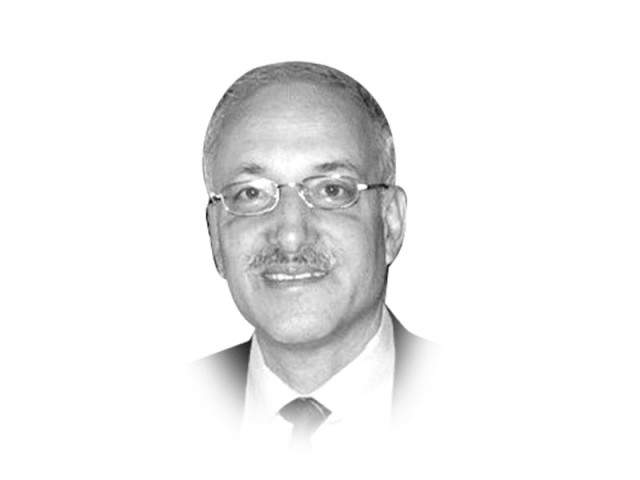Goodbye to Heidelberg
Let us hope that Pakistan has the sense to learn from modern Germany.

tariq.rahman@tribune.com.pk
But as I see people celebrating with fireworks or just enjoying themselves around the Neckar, I think of the different times of this great country. Once it was the land of Teutonic knights and the military. Then, it was the land of philosophers and professors. And in the 1930s and 40s it was the land of the persecution of Jews, communists and others. I think of that time, constructed from memoirs, of people running around, frightened for their lives and trains carrying them to death in the gas chambers. I have seen Anne Frank’s house in Amsterdam but I cannot even imagine the sheer horror of her frail existence. Excessive nationalism, conspiracy theories about the Jews being somehow responsible for German troubles, theories of racial superiority created the witch’s cauldron, which raised the scepter of Nazism. But the fault is not of the German people even if they elected Adolf Hitler. The Allies had asked for so much money in reprisal of World War I and the sense of humiliation in Germany was so palpable that a demagogue with racist theories and the promise of restoring self-respect to the German nation had a chance of success. The gist of the movie Judgment at Neuremberg is that decent Germans voted for Hitler because they wanted to hold their heads up and that is what the Fuhrer had promised them. But the Germans are remarkable in that they have preserved this part of their history; they teach it to their children; they even have museums cataloguing the crimes against the Jews. This is a brave thing to do and I am so impressed when I hear educated Germans remarking that they do not like the revival of the cult of the German flag because they are wary of nationalism. Equally impressive is the rise of Germany as a developed country with motorways, an excellent public transport system, state-of-the art universities and an excellent medical and welfare system. Germany rose like the Phoenix because it had good leadership and a dedicated workforce. Moreover, it has learned to value peace and good living, and this brings me to Pakistan.
Can we learn from Germany? After all, we started our life in 1947 and Germany started emerging from the ashes of bombing in 1945. True, Germany was a developed country even before 1945 and Pakistan was the peripheral part of a British colony. But the British had left something of a modern infrastructure, which could have been developed and which actually was developed but we were too India-centric to spend on anything much except the military. And now, Pakistan is facing a situation similar to that of Germany in the 1930s. Our people have been given a permanent grievance in the shape of the defeat in 1971 at the hands of India. This could have been interpreted as a mistake and Pakistan could have graciously accepted its fault in dealing with the Bengalis militarily now but this has not happened and the grievance remains. But the more dangerous trends that face Pakistan are the radical Islamic militants (the Taliban); individuals preaching war and authoritarianism, and the threat of military or quasi-military rule again. The first have grown so powerful because Pakistanis have never been clearly told that the Taliban have their own agenda of taking power in parts of Pakistan and that they do not fight as a result of drone strikes. Since they do not identify their enemies, Pakistanis do not want to fight them. The preachers of the ‘conquest of India’ are people like Zaid Hamid, who give the same potent medicine of nationalism, jingoism, authoritarianism and charisma, which Hitler and Mussolini gave to their peoples.
Young people do not like preachers of peace and tolerance like myself; they like the rumble of war drums without understanding that wars between countries cost human lives and young peoples’ lives more than anything else. If only our leaders had given good governance and valued peace, we could have defeated the warmongers, but now we are vulnerable to such propaganda. And lastly, if even this government does not perform well, i.e., if the power outages remain, the law and order remains bad; the industry stagnates and we keep borrowing money, we might make our people lose faith in democracy itself. This means anything from a military government to something which has a civilian facade but is backed by the military.
But who can know the future. Let us hope that Pakistan has the sense to learn from modern Germany. Like Iqbal I, too, say goodbye to the Neckar in the poet’s own words:
“Fitrat behosh ho gai hai/ Aghosh mein shab ke so gayi hai” (“Nature has fainted away/ in the lap of the night it has slept”).
Published in The Express Tribune, August 19th, 2013.
Like Opinion & Editorial on Facebook, follow @ETOpEd on Twitter to receive all updates on all our daily pieces.















COMMENTS
Comments are moderated and generally will be posted if they are on-topic and not abusive.
For more information, please see our Comments FAQ